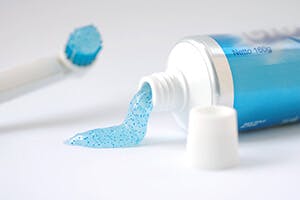Best Practices For Home Oral Care
Posted by Dr. Nubia Díaz Garcia on Fri, 30 Jun 2023
To decrease your risk of getting cavities drink tap water and use fluoridated toothpaste. Maintain a regular habit of brushing thoroughly

ADULTS:

To decrease your risk of getting cavities drink tap water and use fluoridated toothpaste.
Maintain a regular habit of brushing thoroughly, and flossing regularly to prevent gingivitis.
There is no better time to quit smoking then now! Smokers have four times the risk of developing periodontal disease than non-smokers, as well as the increased risk for oral cancers, and these facts are in addition to the overall health risks posed by tobacco.
If you want to reduce your risks of cavities you need to also watch what and when you are eating. Minimize if possible your snack choices that are very high in sugar such as bread, donuts, granola with sugar coating, sticky candy etc. Also, try to avoid taking frequent sips throughout the day of soda pop, juices or other sweetened drinks, this feeds plaque sugars that bacteria need live on, multiply and create the acids that cause cavities. Alternatively try water or reduced sugar beverages.
Don’t forget that your regular dental checkups are the key to possibly preventing extensive corrective treatments. Remember that your regular gum therapy visits are critical in preventing gingivitis and periodontitis as well as instrumental in maintaining your oral and overall health.
Certain medical conditions can put you at a high risk for getting cavities, to reduce your chances your hygienist may recommend topical fluoride treatment.
OLDER ADULTS:
Visit the dentist even if you have no teeth and wear dentures. Professional oral care can provide you with early detection of pre-cancerous lesions, as well as the maintenance and care of your dentures.
If dexterity is compromised, your caregivers will be able to aid you in preforming daily oral hygiene duties.
Side effects of certain medications can be dry mouth, ask your doctor if there are other drugs than can be substituted, if not, then the dentist can prescribe saliva substitutes. If you experience dry mouth be sure to avoid alcohol and tobacco as this can exacerbate it.
PEDIATRIC:
Birth to 11 months:
Parent’s oral health is important to avoid bacterial transmission to your infant.
Minimize exposure to foods that can lead to early cavities.
Hold your infant while feeding; do not leave your infant alone with their bottle. After feeding be sure to wipe your infants mouth with a damped soft cloth (gauze) wrapped around your finger.
To further prevent cavities in your infant do not allow them to fall asleep with a bottle containing milk, formula, juice or any sweetened liquids. Only if necessary, plain water is acceptable.
Use a soft toothbrush twice a day as soon as teeth erupt.
1 to 4 years:
Brush the child’s teeth twice a day.
Allow your child brush their teeth by themselves, but be aware, that until the age of 5 most children have limited manual dexterity, so be sure to supervise and check for the thoroughness of their brushing when they are finished.
Tooth paste should not be swallowed! For this reason until your child is able to spit out well, use a pea size amount of tooth non-fluoridated paste and if your child is under the age of 2 brush only with plain water.
Some towns and cities add fluoride to their water supply, and some do not. Contact your local municipal office to find out if, and how much fluoride is added to the water. If your city does not fluoridate the water please ensure your child drinks water with added fluoride, or takes fluoride supplements.
5 to 10 years:
Supervise their brushing technique and flossing twice a day.
Use a pea size amount of tooth paste.
Please ensure your child drinks city water, water containing fluoride or takes a fluoride supplement.
Make sure unhealthy snacks are available in moderation, while continually stressing healthy eating habits. This will reinforce the connections between oral and overall health.
11 to 21 years:
Continue to be adamant about your child healthy oral hygiene habits.
Your dentist may consider preventive measures such as dental sealants or preventive composite resins.
Be aware that teens are susceptible to tooth decay, due to immature enamel in newly erupted teeth; lack of oral hygiene; frequent exposure to high amounts of sugars in pops, juices, and snacks.
Also watch for possible drugs intake as methamphetamine, eating disorder as bulimia and acidic drinks that will erode enamel.
Dentist North York
Book Online
Stonebrook Dental offers the ability to request your dentist appointments online. Schedule an appointment now!
Book OnlineNew Patient Forms
By filling out the New Patient Forms ahead of time you will save significant time on your visit.
New Patient Forms